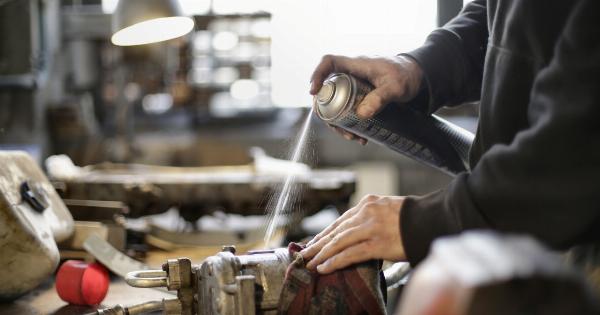Entering your 40s is often accompanied by many changes in life, including shifts in career, family dynamics, and even your body. One area that is commonly affected is your sexual life – but this does not mean that your fire has to fizzle out.
In fact, your 40s can be a time of sexual reawakening and exploration. With a few simple strategies and a mindset that embraces change, you can reignite your sexual desire and experience more pleasure than ever before.
The Importance of Self-Care
As you navigate your 40s, it becomes crucial to prioritize self-care. Taking care of your physical and mental well-being is essential to rekindling your sexual fire. Start by incorporating regular exercise into your routine.
Exercise not only boosts your self-confidence by improving your body image but also increases blood flow and releases endorphins, making you feel more energized and sexually vibrant.
In addition to exercise, ensure you are getting enough sleep and managing stress effectively. Lack of sleep and chronic stress can negatively impact your libido and overall sexual satisfaction.
Incorporate relaxation techniques such as meditation or yoga into your daily routine to promote a sense of calm and balance.
Embrace Communication
Open and honest communication with your partner is key to rediscovering your sexual fire. As you age, your desires and preferences may change, and it is essential to share these transformations with your partner.
Talk openly about your needs, fantasies, and any concerns you may have. Remember, sexual intimacy is a shared experience, and both partners should feel comfortable expressing their desires and boundaries.
It can also be beneficial to seek professional help if needed. Sex therapists or couples counseling can offer guidance and provide a safe space for both partners to explore their desires and deepen their connection.
Explore New Territory
Avoid falling into a routine in the bedroom. Exploring new sexual experiences can reignite the fire in your relationship. Consider trying out new positions, incorporating toys or props, or engaging in role-playing scenarios.
The possibilities are endless – the key is to be open to experimentation and find what works for both you and your partner.
Exploring outside the bedroom can also have a positive impact on your sexual life. Plan romantic getaways or date nights to create a sense of excitement and adventure. Trying new activities together can strengthen your bond and fuel your sexual desire.
Focus on Foreplay
As you age, foreplay becomes even more essential in enhancing sexual pleasure and desire. Take the time to engage in extended foreplay sessions with your partner.
Experiment with different techniques, such as sensual massages or oral sex, to build anticipation and intimacy.
Don’t rush through foreplay – savor every moment and focus on exploring your partner’s erogenous zones.
By prioritizing foreplay and expanding your repertoire of techniques, you can enhance arousal and create a more fulfilling sexual experience for both you and your partner.
Pay Attention to Physical Wellness
Physical wellness plays a vital role in maintaining your sexual fire in your 40s. Consider making changes to your diet to support optimal sexual health.
Incorporate foods rich in antioxidants, such as berries and dark chocolate, which can improve blood flow and promote sexual vitality.
Additionally, certain herbs and supplements have been known to enhance sexual desire and performance. Consult with a healthcare professional before starting any new supplements to ensure they are safe and appropriate for your individual needs.
Maintain Intimacy Outside the Bedroom
Intimacy is not solely confined to the bedroom. Cultivate a sense of emotional closeness and connection with your partner in all aspects of your life.
Engage in meaningful conversations, spend quality time together, and express appreciation and affection regularly.
Physical touch and affection outside of sexual encounters can help to foster a deeper sense of intimacy and connection. Hold hands, cuddle, and kiss throughout the day to build anticipation and keep the flame alive.
Addressing Hormonal Changes
As you age, hormonal changes can impact your sexual desire and functioning. It may be helpful to consult with a healthcare professional, such as a gynecologist or urologist, to discuss any concerns or symptoms you are experiencing.
In some cases, hormone replacement therapy (HRT) may be recommended to balance hormonal levels and restore sexual vitality.
However, the decision to pursue HRT should be made in consultation with a healthcare professional, considering your individual health history and risk factors.
Stay Curious and Open-Minded
A curious and open-minded mindset is the key to rediscovering your sexual fire in your 40s. Be willing to explore new possibilities, embrace change, and learn about your own body and desires.
Remember, sexual pleasure is unique to every individual, and what worked in your 20s may not necessarily work in your 40s. Give yourself permission to evolve and adapt your sexual repertoire to align with your changing preferences and needs.
Conclusion
Your 40s can be an exciting and fulfilling time for your sexual life.
By prioritizing self-care, embracing communication, exploring new territory, focusing on foreplay, attending to physical wellness, maintaining intimacy outside the bedroom, addressing hormonal changes, and staying curious and open-minded, you can rediscover your sexual fire and experience heightened pleasure and satisfaction.





























